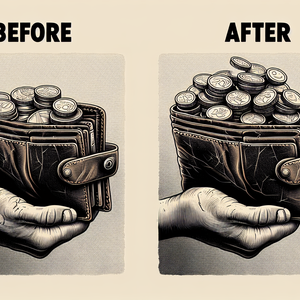The Evolution of PR Strategies in the Digital Age

One of the most significant transformations in PR has been the rise of social media platforms as essential tools for communication and engagement. Gone are the days when press releases were the primary means of disseminating information. Today, PR professionals leverage platforms like Twitter, Instagram, and LinkedIn to engage directly with audiences. For instance, agencies like Edelman have successfully harnessed the power of social media to enhance their campaigns. By creating shareable content and utilizing real-time engagement tactics, they have turned traditional PR on its head. This shift allows for immediate feedback and interaction, enabling PR professionals to gauge public sentiment and adjust their strategies accordingly. Edelman’s focus on real-time communication has shown that social media is not just an add-on but a vital component of any PR strategy.
Influencer Partnerships: A New Breed of Advocacy
In addition to social media, influencer partnerships have become a cornerstone of modern PR strategies. Collaborating with influencers allows brands to tap into pre-existing audiences, creating authentic connections that resonate with consumers. This approach not only amplifies brand messages but also fosters trust among potential customers. Agencies such as Golin have redefined influencer marketing by focusing on building long-term relationships rather than one-off campaigns. They prioritize authenticity and relevance, ensuring that the influencers they work with genuinely align with their clients' values and objectives. For example, Golin's work with beauty brands often includes collaborations with beauty influencers who embody the brand's ethos, enhancing credibility and leading to successful outcomes. Audiences are more likely to engage with content that feels genuine and relatable, making influencer partnerships a powerful tool in the PR arsenal.
Data Analytics: The Backbone of Strategic Decision-Making
The integration of data analytics into PR strategies marks another critical evolution in the field. With access to vast amounts of data, PR professionals can now measure the impact of their campaigns with unprecedented precision. Analytics tools enable agencies to track engagement metrics, audience demographics, and sentiment analysis, providing valuable insights that inform decision-making. For example, Ogilvy has embraced data-driven PR, utilizing analytics to shape their strategies and optimize campaign performance. By analyzing data trends, Ogilvy can identify what resonates with audiences and adjust their messaging in real time. This capability not only enhances campaign effectiveness but also allows for more tailored and personalized communication, ultimately leading to stronger client relationships. Their data-driven approach has set a benchmark in the industry, demonstrating the importance of analytics in shaping successful PR campaigns.
Case Studies of Successful Digital PR Campaigns
Several case studies illustrate the successful application of these evolved PR strategies. One notable example is the #LikeAGirl campaign by Always, which leveraged social media and influencer partnerships to challenge gender stereotypes. The campaign went viral, garnering millions of views and sparking vital conversations around female empowerment. This success was rooted in understanding the audience and using digital platforms to amplify the message. Another compelling case is Nike’s use of data analytics in their Nike+ app campaign. By analyzing user data, Nike was able to create personalized marketing strategies that appealed to their customers’ specific fitness goals and interests. This targeted approach not only boosted engagement but also fostered a sense of community among users, illustrating how data can be used to strengthen brand loyalty.
The evolution of PR strategies in the digital age reflects a dynamic and responsive industry that is continually adapting to new technologies and consumer behaviors. The integration of social media, influencer partnerships, and data analytics has transformed how PR professionals engage with audiences, making campaigns more interactive and measurable. As firms in New York City and beyond continue to innovate and evolve, the future of PR promises to be as exciting as it is challenging. Embracing these changes not only enhances the effectiveness of campaigns but also ensures that PR remains a vital component of communication in an increasingly digital world. In this ever-evolving landscape, staying ahead of the curve will be essential for PR professionals looking to make a lasting impact. As new technologies emerge and consumer preferences shift, the most successful PR strategies will likely be those that blend traditional practices with innovative digital approaches, ensuring that they meet the needs of today’s audiences.
Social Media Manager
Edelman, Golin, Ogilvy, and other PR agencies and marketing firms
Core Responsibilities
Develop and execute social media strategies across multiple platforms (e.g., Twitter, Instagram, LinkedIn) to enhance brand visibility and engagement.
Monitor social media channels for trends, audience feedback, and brand mentions to inform content and strategy adjustments.
Create engaging, shareable content that resonates with target audiences and encourages interaction.
Required Skills
Proficient in social media management tools (e.g., Hootsuite, Buffer) and analytics platforms (e.g., Google Analytics).
Strong writing and creative skills, with an understanding of the nuances of each social media platform.
Experience in crisis communication management and real-time engagement tactics.
Influencer Marketing Specialist
Golin, MSL, and various brands in beauty, fashion, and lifestyle sectors
Core Responsibilities
Identify and build relationships with relevant influencers to create authentic partnerships that align with brand values.
Plan and manage influencer campaigns, from inception to execution, ensuring alignment with overall marketing strategies.
Analyze the effectiveness of influencer collaborations through metrics like engagement rates and audience reach.
Required Skills
Deep understanding of social media trends and influencer marketing best practices.
Strong negotiation skills and experience in contract management.
Ability to analyze data and provide insights on campaign performance and influencer impact.
Data Analyst in Public Relations
Ogilvy, Burson Cohn & Wolfe (BCW), and large corporations with in-house PR teams
Core Responsibilities
Analyze campaign performance data to inform PR strategies and optimize future initiatives.
Utilize data analytics tools to track audience demographics, engagement metrics, and sentiment analysis.
Create comprehensive reports that showcase insights and recommendations for clients and internal teams.
Required Skills
Proficiency in data visualization and analytics software (e.g., Tableau, Google Data Studio).
Strong analytical skills with the ability to interpret complex data sets and translate them into actionable strategies.
Familiarity with PR metrics and the ability to understand the impact of campaigns on brand perception.
Digital PR Strategist
Edelman, Weber Shandwick, and various tech startups
Core Responsibilities
Craft integrated PR campaigns that leverage digital channels, including social media, blogs, and online publications.
Collaborate with content creators and designers to develop compelling digital assets that enhance brand storytelling.
Monitor digital trends and competitor activities to refine PR strategies continuously.
Required Skills
Proven experience in digital marketing and PR, with a strong portfolio of successful campaigns.
Excellent communication skills, both written and verbal, with an understanding of SEO best practices.
Ability to conduct market research and audience analysis to drive targeted PR efforts.
Brand Communications Manager
Major corporations, PR agencies, and organizations focused on brand development
Core Responsibilities
Develop comprehensive communication strategies that align with brand messaging and PR goals across all digital platforms.
Manage media relations and develop press materials that effectively communicate brand stories.
Coordinate with cross-functional teams to ensure cohesive messaging and brand representation.
Required Skills
Strong understanding of branding principles and experience in corporate communications.
Excellent public speaking and presentation skills, with the ability to represent the brand at events and in media.
Experience in crisis management and the ability to respond to issues swiftly and effectively.


